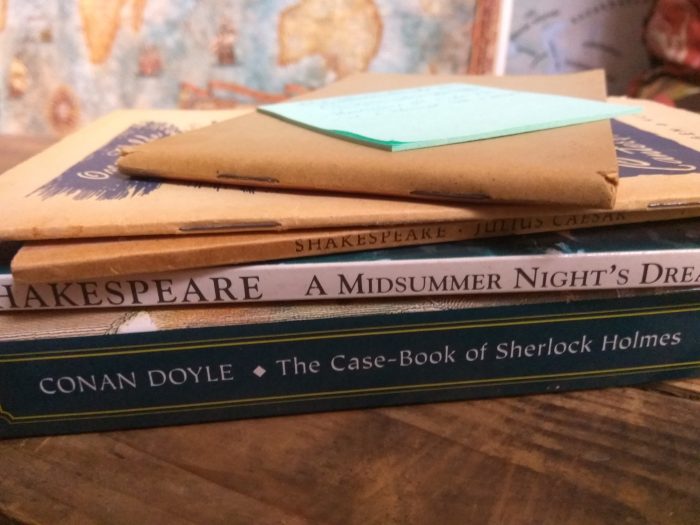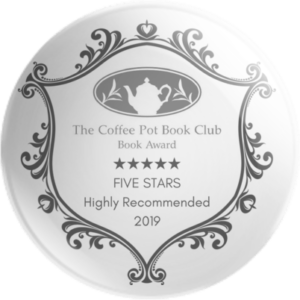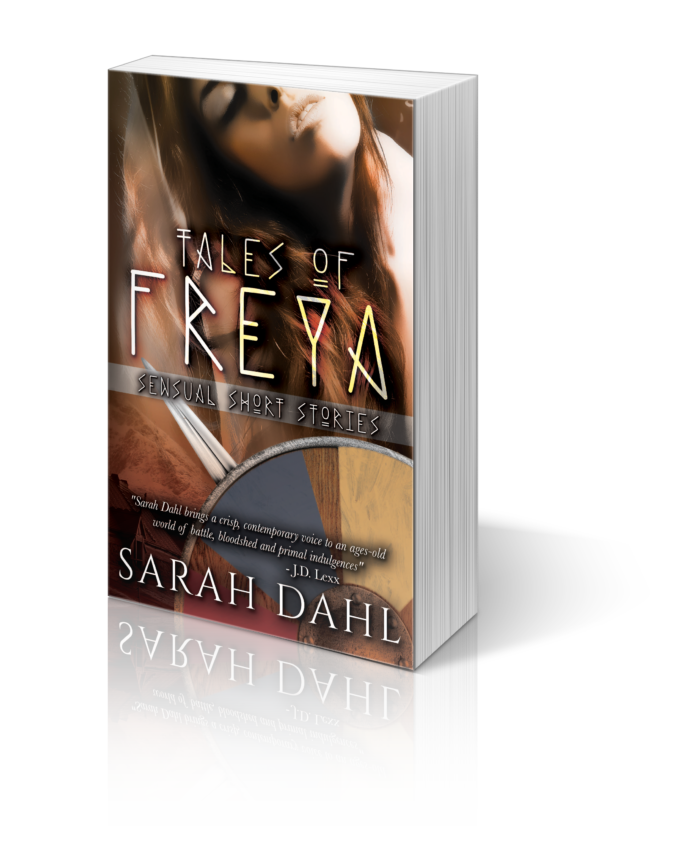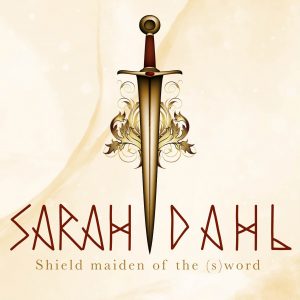Taking short stories seriously
Why you should write them, and most of all: publish them!
Since I write a lot of short stories, I’m an advocate for them. Read them, write them, publish them. Seen from a reader’s perspective: People have shorter attention spans and a read can be done on the commute, in bed, in a waiting room.
One can switch stories if one doesn’t feel right for that moment; it just doesn’t take as much investment to get “into” a story – and to finish it. I believe that if you found an author you love, you’ll be very willing to fill your reading device with her short works for exactly such instances.
I’m a busy writer of short stories. My Tales of Freya are a good example of a collection of unrelated shorts (they are not a series as such!) that I treat like any long work I write. Yes, they are listes under “Books” – because I take them just as serious and put all the necessary work in. Just like a singer releases singles along with compilations. Or just like a schnaps is considered a drink into which a lot of work went, despite its small size.
Shorts let me practise and improve in several ways. No matter YOUR writing genre, my perspective is this: Decades ago, I started my whole writing endeavour with them, and they are still a vital part of my output. I improved my craft and learned a lot by simply writing and putting them out there, under critical eyes. Me and my writing buddies regularly write and exchange short stories: to loosen up, to practise, to improve, try out new things. Many times when we were stuck or bored or had lost our mojo, we just brainstormed a small, simple plot for fun and ended up with something publish-able.
A short story gives you the compact chance to experiment with something rough and thoroughly un-plotted – a new genre, a new character, an inident and its aftermath, something fun and light or too dark to stretch out over an entire novel. I often have an idea for something and just start and see where it takes me. Then, I treat them like I would any longer work and put the work in. So far, there are four Tales of Freya available, and another three in the pipeline 😉
The writer’s textbook says: practise with shorts
Of course, the usual argument in favour of writing shorts is practice:
- You get to experiment and practise whatever bugs you
- You can experiment for the big novel, try things, a scene, characters, chemistry
- You can practise punchy endings, because in shorts those are even more vital
- You can practise one theme or message, how to condense it into something that leaves an impact
- You can practise this vital craft of getting straight to the heart of things without fuss and frills, cutting back the “fluff”
- You can have fun and practise without the usual months of planning and headache of plotting
- Your head and heart is freer and more in a playful mode with shorter works, going wrong won’t hurt as much
- A short story can break up any writing block while you’re stuck with the big novel, it can refresh your mind and have you step back for once and into a different world
And here comes my take on short stories: If you take them seriously, as many big-name authors do, they are more than just a playing field.
… But I say: Take short stories more seriously!
… both of you, readers and authors. Because: For readers, short stories can be a good glimpse into what you can do: How you write. If you move them, leave something with them. They can be an easier pathway into readers’ hearts.
So I’d advise to choose your best short stories and take them just as serious as a novel: After the fun, discuss them with your beta-readers and put the work in to perfect them, to carve out the message and make it as punchy and exciting as you can … because they can be a vital weapon in your writer’s arsenal:
From a craft point of view
- You can show off your craft, and seduce new readers with minimum effort/within a fraction of the time (for both writing and reading)
- Within a shorter time frame you’d be able to create more output, which means more opportunities to hook new readers and set them on your path (also to longer works)
- You can get a grip on publishing (like I did): By putting out several shorter works you get to practise the entire process: writing blurbs, promo material, categorise, keyword tests … You’ll be a pro by the time your big novel is done and years of work need your very best effort
- You’ll be less overwhelmed when the time for the big work has come; you’ve done it all repeatedly before, know which steps to take and when (which is my no. 1 reason atm!)
- You can use the short material to supplement your longer works in-the-making (see below)
- Give the shorts the same love and attention: a professional cover, blogging (your own or guest blogs), marketing efforts to try things that don’t hurt much
- Test what works and which measures are redundant so that you’re prepared once the big work is ready
- More output increases the number of opportunities to shine, to show yourself, to find readers, build connections, network etc.
From a marketing point of view
With several shorter works you have more material for different purposes:
- A short can be work sample/teaser/gift on your site, or
- you sell it regularly, on its own, or in anthologies, in bundles, as extras coming with a longer work or a bundle …
- You can dive into themes, sideplots, characters of works readers are already familiar with and demand more of while you’re busy working on a long sequel
- You can keep marketing and showing off fresh material while in the background working on something longer
- You can keep interest up (hopefully! Do it right!)
So yes, ideally short stories are fun to write and carry less pressure, but ideally they let you practise craft and marketing. Take them seriously!
As a reader: Value that this shorter work takes just as much if not more (many authors say they can’t write shorts easily or never do) effort than a novel. Shorter doesn’t mean easier done and created with less seriousness. It’s a whole different set of skills.
As writers: Make use of what regular short story writing can offer you in terms of crafting and promoting yourself. If you then also write several stories within the same genre/world/theme you have material at hand that can seriously flesh out your portfolio in a very flexible way.
So over to you, reader and writers: What’s your opinion on short works to be taken just as seriously?Do you like them? If you haven’t yet considered them, would you give them a try (reading or writing them)? Which would interest you? I’m very curious to hear what you have to say!








Comments (12)